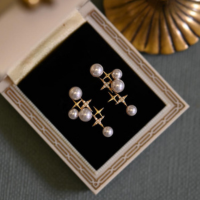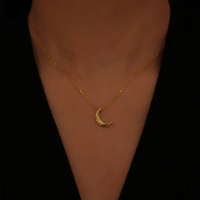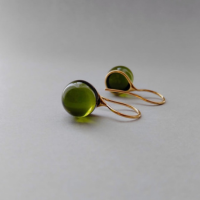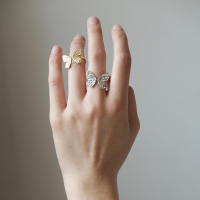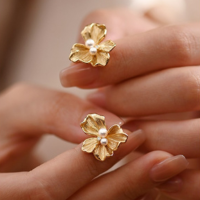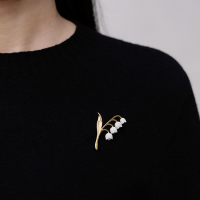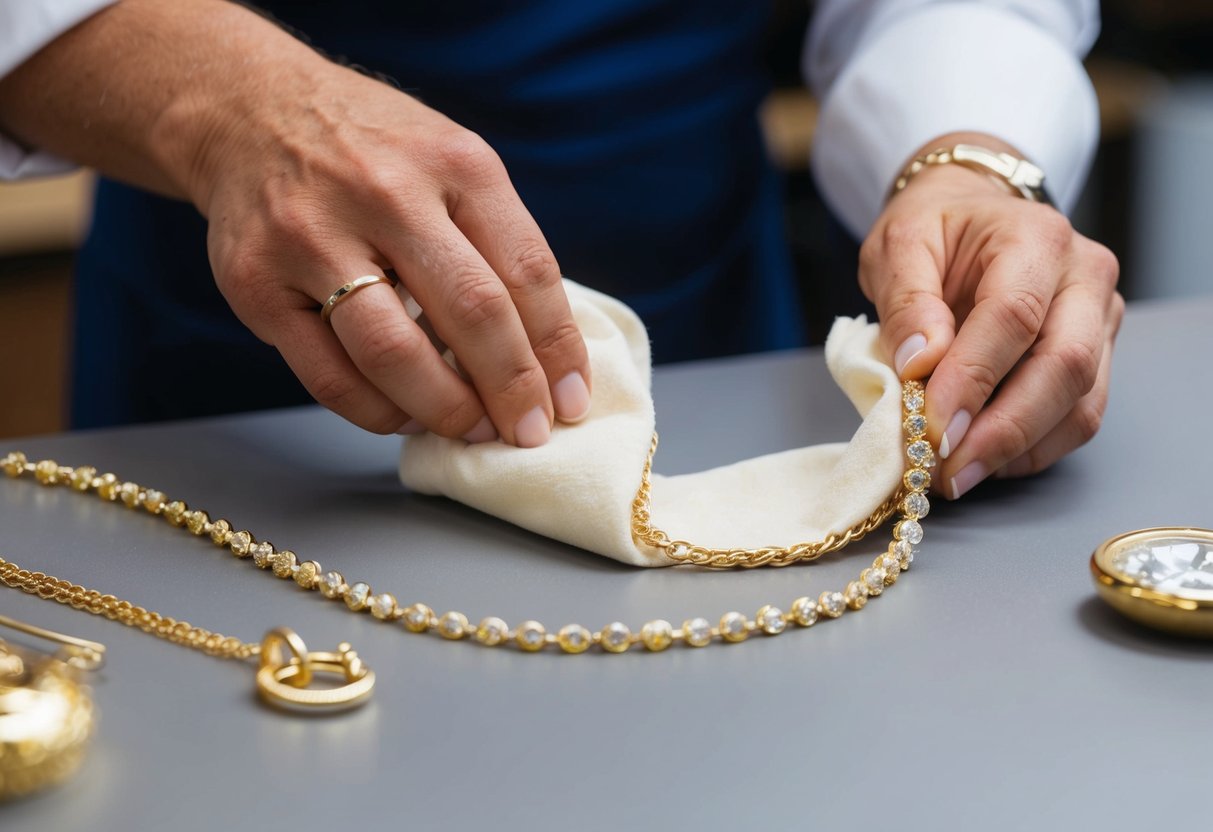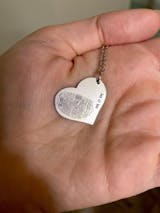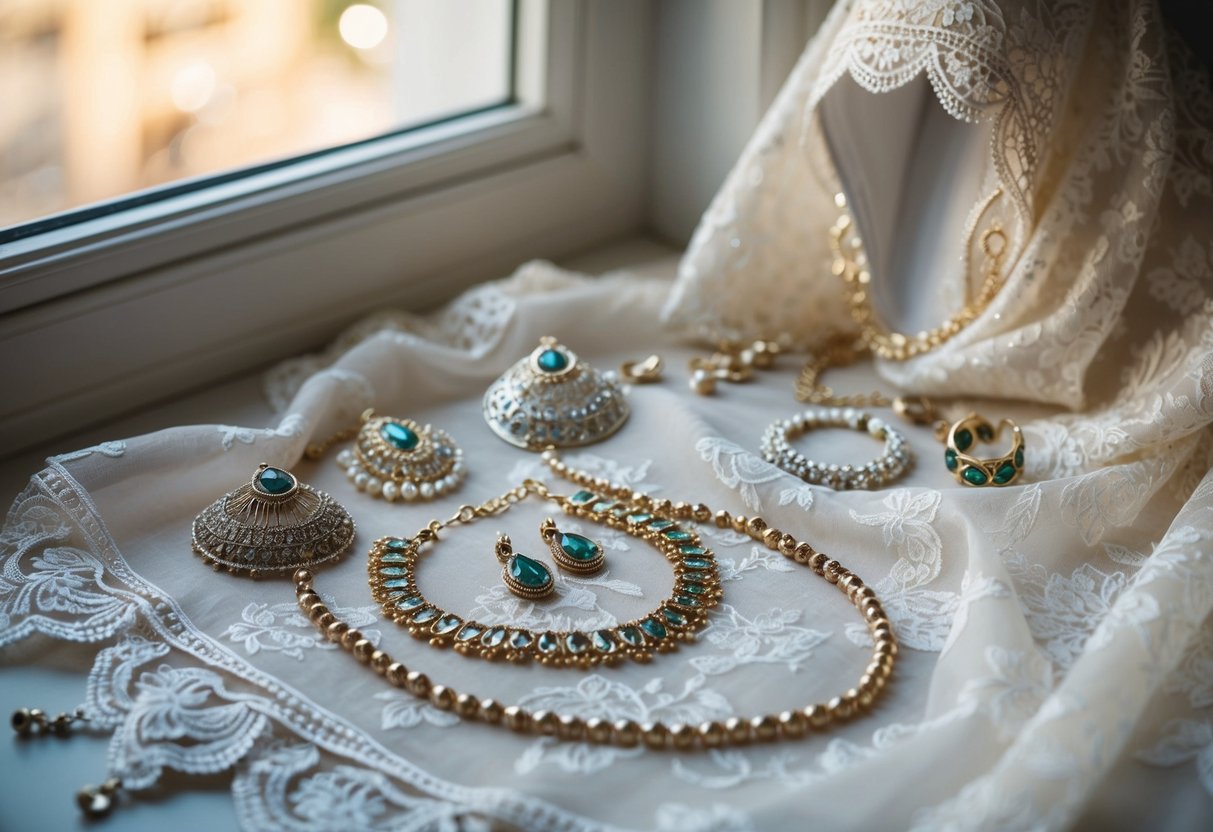
Can Muslims Wear Jewelry
Check out our personalized jewelry collections! (kids drawing jewelry, coin jewelry, wire jewelry, fingerprint jewelry, handwriting jewelry, and more)
Jewelry can be a beautiful way to express personal style and beliefs. Many people wonder if it's okay for Muslims to wear jewelry. In Islam, wearing jewelry is generally permissible, but there are specific guidelines to follow based on tradition and scripture.
Jewelry in Islam can have different meanings and purposes. Men and women may have different rules regarding the types and amounts of jewelry they wear. For instance, Islamic teachings often guide men to avoid gold, while women have more flexibility in their choices.
When we choose jewelry, it's important to consider ethical factors and the respect we have for these items. Pieces that align with our values can enhance both personal and spiritual significance, making each piece more than just an accessory.
Key Takeaways
- Jewelry is mostly allowed in Islam with some guidelines.
- Men and women have different rules for wearing jewelry.
- Ethical and respectful choices are important in jewelry selection.
Islamic Views on Jewelry
In our exploration of Islamic views on jewelry, it is important to consider both religious teachings and cultural practices. Jewelry holds different meanings and roles in Muslim communities.
Religious Texts & Jewelry
Muslims look to religious texts to guide their choices about jewelry. The Quran does not specifically prohibit wearing jewelry. However, modesty is emphasized. Islamic teachings suggest that both men and women should dress modestly. For example, gold and silk are traditionally worn by women, but there is some debate about men wearing gold.
Hadiths, or sayings of the Prophet Muhammad, sometimes discuss jewelry. They can offer guidance, often highlighting the importance of intention and modesty. It's clear that religious texts allow for jewelry, but intent and modesty play significant roles in these decisions.
Cultural Variations
Cultural practices influence how Muslims wear jewelry. In various Muslim communities, jewelry serves different roles. In some cultures, jewelry is an essential part of wedding attire, carrying symbolic meanings. Others may use jewelry for personal adornment or as family heirlooms passed down through generations.
Certain cultures and traditions may encourage wearing specific types of jewelry, like bangles or necklaces, which can reflect regional styles. These cultural variations show the diverse ways jewelry is appreciated and worn by Muslims around the world, blending religious guidance with rich traditions.
Types of Jewelry in Islam
In Islamic culture, jewelry holds both personal and cultural significance. This section explores the types of jewelry commonly worn, their meanings, and religious guidelines.
Rings and Their Significance
Rings are quite popular. Our favorite might be the simple silver band, as it's often recommended. Gold rings are not usually worn by Muslim men, as they are discouraged in religious teachings.
Women have more freedom in their choice. They can wear gold, silver, or other metals. Rings can symbolize commitment, such as in marriage. Some of us might choose rings with engravings of blessings or the name of Allah. These add personal meaning to the piece.
Bracelets and Necklaces
Bracelets and necklaces offer a wide array of styles. We might like gold or silver, especially for necklaces, as they suit various occasions. Just like with rings, it’s important to consider what materials are appropriate for men and women.
Beaded bracelets can feel personal and stylish. Simple designs in silver or leather are versatile. Some of us prefer necklaces with pendants. They might carry an important symbol or inscription, adding a spiritual connection to everyday wear.
Precious Metals and Gems
When it comes to precious metals, gold and silver stand out. Silver is universally acceptable for all. Gold is typically just for women. We sometimes let personal taste guide the choice but stay mindful of religious guidelines.
Gems such as emeralds and rubies can add color and elegance. Our focus might be on the beauty these gems bring to the jewelry. While there are no strict rules against wearing certain stones, some might choose stones with a personal or spiritual significance.
Gender-Specific Guidelines
In the world of jewelry, guidelines based on gender hold cultural and religious significance. Understanding these rules enhances our appreciation for the traditions involved.
Rules for Women
In many Islamic communities, women are encouraged to enjoy wearing jewelry. Gold and silver are commonly accepted materials. Many women wear these in forms like bracelets, necklaces, and earrings. Jewelry often symbolizes beauty and personal expression while adhering to religious beliefs.
Modesty is a key consideration. Women tend to choose pieces that are elegant but not overly flashy. The choice of jewelry is often influenced by personal preference, cultural background, and religious teachings. Many women wear jewelry, especially for celebrations or special occasions, where it holds both decorative and spiritual value.
Guidelines for Men
For men, the guidelines are more specific. Gold jewelry is traditionally discouraged. Men usually prefer silver for rings or watches. These choices align with religious principles and cultural expectations.
Men's jewelry tends to be subtle and restrained. A simple silver ring or watch can complement a man's attire without drawing excessive attention. Emphasis is on simplicity and functionality rather than decoration. This approach respects religious practices while allowing personalization and style. Men's jewelry often reflects a balance between tradition and individuality.
Jewelry Beyond Adornment
Jewelry can offer more than just style and sparkle. It may provide spiritual significance and be associated with well-being.
Spiritual and Health Benefits
In many cultures, people wear jewelry not only for fashion, but also for spiritual and health reasons. Some pieces are believed to bring peace, reduce stress, or improve positive energy. For instance, wearing jewelry with gemstones like amethyst or turquoise is thought to have calming effects.
Copper is one example that some believe can help with joint pain. We commonly see bracelets designed for these purposes. Although science does not fully support these claims, many individuals feel a sense of well-being from wearing such items.
Talismans and Amulets
These are often more than decorative. They can hold religious or cultural meaning and are worn for protection or luck. In many traditions, wearing a piece engraved with certain symbols can act as a shield against negative energies or bad luck.
For example, the Hamsa hand or the Evil Eye are popular in various cultures. They serve not just as fashionable elements, but also as tokens of faith or heritage. We often find these in necklaces, pendants, and bracelets. Such items connect us to our beliefs and traditions, making them cherished pieces.
Modern Trends and Islamic Jewelry
Islamic jewelry is becoming more popular with its unique blend of faith and fashion. Many designs focus on current styles, while others offer personalization options that carry spiritual meaning.
Contemporary Designs
Today, Islamic jewelry reflects a balance between traditional elements and modern fashion. Designers use symbols like the crescent moon and star, Arabic calligraphy, and natural motifs. Materials such as gold, silver, and gemstones add elegance.
Chokers, earrings, and bracelets are common, showcasing intricate patterns. Minimalist designs are also getting attention. They often incorporate simple yet meaningful symbols, appealing to those wanting a subtle look. These pieces can be worn daily and cater to different tastes.
Islamic jewelry is about merging cultural heritage with today’s styles. This creates pieces that resonate on a personal and aesthetic level.
Personalized Islamic Jewelry
Personalized Islamic jewelry is a wonderful way to express individuality and beliefs. Many of us prefer items with our names in Arabic or meaningful Quranic verses. This trend has inspired custom necklaces, rings, and even anklets.
Technology now allows easy customization, giving us control over design. Laser engraving and 3D printing make personalizing jewelry more accessible. We can choose fonts, symbols, and materials, ensuring every piece feels unique.
Personalized pieces are more than accessories. They become cherished keepsakes that connect us to faith and personal style, making them a favorite among jewelry enthusiasts.
Purchasing Ethical Jewelry
When choosing ethical jewelry, we consider how it affects the environment and supports local artisans. We aim to make buying decisions that help the planet and people.
Sustainable Practices
We focus on eco-friendly materials and methods in our jewelry. Many jewelers now source metals and gems that are ethically mined. Some brands recycle or upcycle materials, reducing waste and minimizing environmental harm. When we select sustainable jewelry, we help protect ecosystems.
Buying from brands that use renewable energy in production is another way to promote sustainability. Jewelry made this way often carries certifications, like Fair Trade or Eco-Cert. Trusting these labels can guide us in making responsible choices that are better for our planet.
Supporting Artisan Communities
Choosing to buy jewelry from artisans supports their communities directly. Much of this jewelry is handmade, reflecting unique skills and traditions. When we purchase these pieces, we help keep important crafting traditions alive. This can lead to community growth and prosperity.
Respecting Cultural Significance
Respecting the cultural significance of jewelry is key to appreciating its deeper value. Many pieces hold special meanings and traditions, which we should honor. For instance, certain jewelry may symbolize religious beliefs or heritage and should be worn accordingly. Understanding these meanings helps us connect more deeply with the pieces and the cultures they represent.
When purchasing or wearing culturally significant jewelry, it's important to be informed about its background. We should make sure we are not misusing or misrepresenting it. This respect enhances our appreciation and enjoyment of the jewelry. It often leads to a richer connection with the craftsmanship and stories behind these beautiful pieces.

